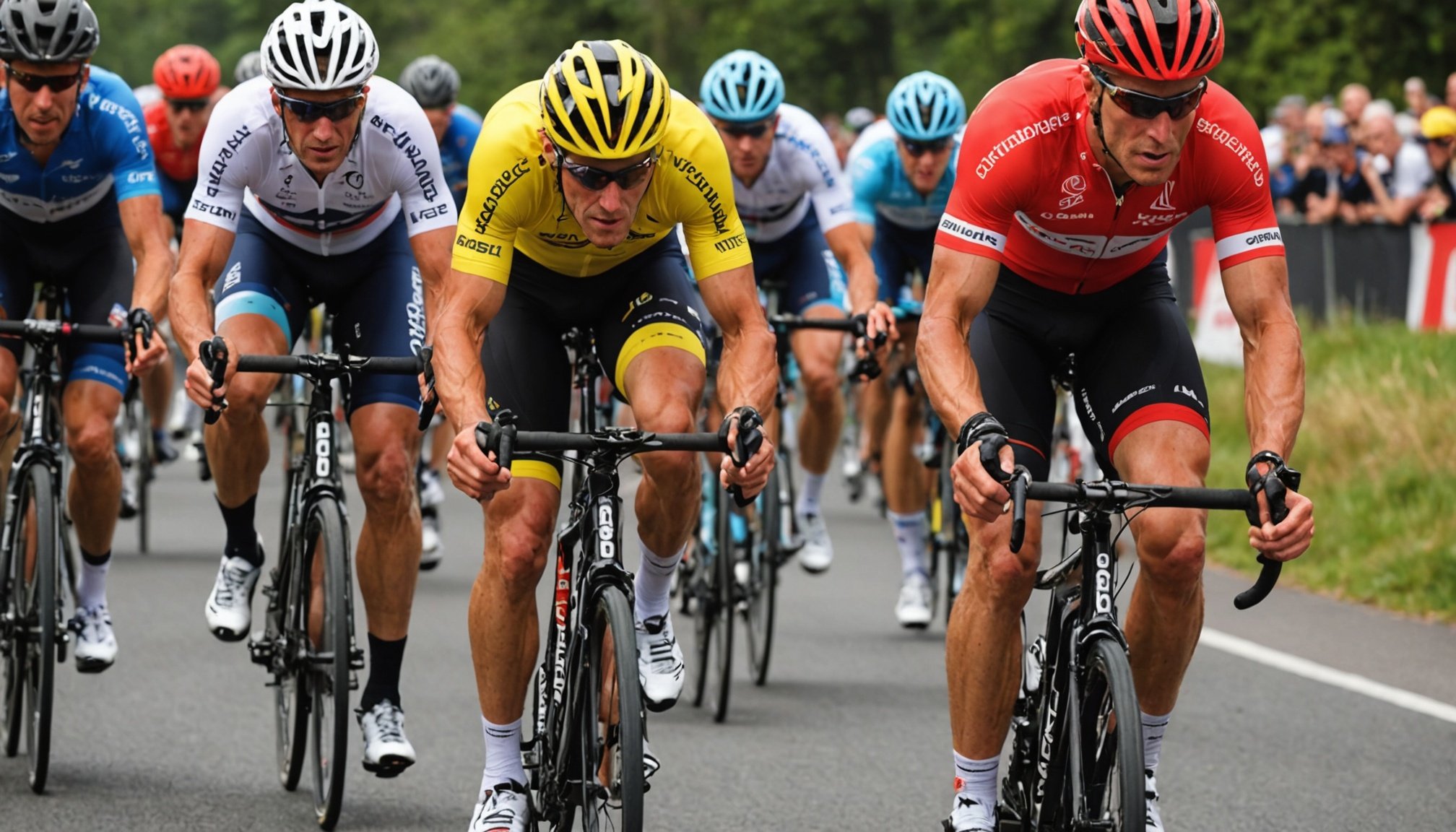Understanding Mental Fortitude in Cycling
Understanding mental resilience in cycling is essential, as it significantly impacts an athlete’s performance, particularly during demanding multi-stage races. Mental fortitude refers to the mental toughness and psychological strength required to endure challenges, overcome obstacles, and maintain performance under pressure. In the context of cycling, this quality ensures that cyclists can handle physical and psychological challenges without compromising their performance.
During multi-stage races, psychological endurance becomes crucial, as these events demand sustained effort over several days. Cyclists face common mental challenges such as fatigue, unexpected adversities, and the stress of maintaining competitive edge in prolonged and intense competitions. The ability to remain focused, manage emotions, and stay motivated can dictate the success or failure of an athlete in these grueling events.
Additional reading : Unlock your hiking adventure: tips, trails, and gear insights
Mental strategies become indispensable tools in combating these challenges. Techniques such as visualization, positive self-talk, and stress management are proven methods that can enhance mental fortitude. By fostering psychological endurance, cyclists can better cope with the mental demands of long races, allowing them to push through difficult stages and continue to strive for peak performance goals. These strategies empower cyclists to weather both the physical and mental storms faced during competitive cycling events.
Key Psychological Strategies for Enhancing Mental Fortitude
Mental training is crucial in cycling to bolster proven psychological strategies for performance enhancement. Effective visualization techniques serve as a cornerstone. Visualization involves creating mental images of successful performance, enabling cyclists to rehearse stages mentally. This primes the mind for anticipated challenges, fostering greater mental resilience. To effectively incorporate visualization, cyclists should envision detailed scenarios, combining sensory experiences and emotional engagement, which can be integrated into daily routines.
Additional reading : Elevate your skills: powerful mental strategies for professional skiers to overcome fear of jumps
Visualization Techniques
Cyclists like Chris Froome have successfully employed visualization, imagining each phase of the race to boost confidence and outcomes. Consistent practice allows athletes to strengthen their psychological strategies, preparing them mentally for various scenarios.
Positive Self-Talk
Another pivotal strategy is positive self-talk, which plays a vital role in managing anxiety and increasing confidence. Cyclists can transform negative thoughts into positive affirmations, such as “I have trained for this moment.” Techniques include replacing self-doubt with constructive statements, reinforced through repetition and belief. Lance Armstrong often credited positive self-talk during intense competitions, illustrating its beneficent effects on mental training.
Stress Management Techniques
Stress management is integral to maintaining mental resilience. Identifying stressors unique to multi-stage races enables cyclists to deploy coping mechanisms effectively. Practices like mindfulness or breathing exercises mitigate stress during competition, enhancing mental stability. By adopting these strategies, cyclists achieve more robust mental fortitude, crucial for thriving in the high-pressure environment of competitive cycling.
Goal Setting as a Tool for Mental Resilience
Goal setting plays a pivotal role in fostering mental resilience for cyclists. By establishing clear, realistic, and measurable goals, athletes can maintain focus and drive during intense training and multi-stage races. Setting these goals not only guides performance but also boosts motivation, providing cyclists with a clear roadmap to success.
Breaking down long-term performance goals into manageable short-term targets is essential. This approach allows cyclists to monitor their progress incrementally, making the overarching objective more attainable. It provides regular opportunities for reflection and adjustment, ensuring that the rider stays motivated and adaptive throughout their journey.
Real-world cases underscore the significance of goal setting. Elite cyclists, for instance, often attribute their success to meticulously crafted goal systems. One notable example is when sprinters set specific time benchmarks for individual race segments. This technique empowers them to focus on achieving smaller, immediate objectives, which cumulatively lead to surpassing their overall goals.
Furthermore, motivational techniques embedded in goal-setting frameworks help cyclists overcome plateaus and stay resilient against setbacks. By celebrating minor achievements, athletes can reinforce their commitment and maintain high spirits, crucial for enduring the mental trials of competitive biking. In essence, effective goal setting acts as a compass, guiding cyclists through the demanding landscape of their athletic pursuits.
Real-world Applications: Testimonials and Case Studies
Cyclists often share captivating testimonials about facing mental barriers head-on in multi-stage races. These cyclist testimonials offer invaluable insights into mental resilience, serving as inspiration and guidance for others. By examining case studies, cyclists can understand how effective psychological strategies have been deployed successfully in competitive settings.
Case studies from renowned cyclists frequently highlight the transformative power of mental training. For example, an athlete might recount overcoming intense fatigue and mental stress during a pivotal race through visualization techniques and positive self-talk. These firsthand accounts substantiate the theoretical strategies discussed, bridging the gap between theory and practical application.
Many case studies delve into the specifics of psychological endurance, revealing how personalized mental strategies played a crucial role in triumphing over challenges. These examples demonstrate that tailored approaches, such as setting clear performance goals and managing stress effectively, can lead to remarkable achievements in cycling.
Lessons from professional cyclists emphasize the integration of mental resilience strategies into daily routines. By learning from both successes and setbacks, aspiring cyclists are better equipped to navigate the formidable demands of competitive racing. Such practical applications continue to underscore the importance of mental fortitude in cycling, empowering athletes to persevere through daunting tests.
Developing a Personal Mental Training Plan
Creating a mental training plan tailored to individual needs enhances a cyclist’s psychological preparedness. Assessing one’s current mental strengths and weaknesses is the first crucial step. Athletes can use various tools for self-assessment, like questionnaires or mental resilience scales, to identify areas requiring improvement. Self-awareness garnered through these assessments is essential for constructing an effective training plan, as it highlights specific psychological attributes to focus on.
Assessing Current Mental Strengths and Weaknesses
Having a clear understanding of one’s mental dynamics allows cyclists to select personalized strategies that address their unique challenges. For instance, some may benefit more from stress management techniques if racing stress hinders performance, while others might need more robust positive self-talk routines. This awareness is foundational for developing a routine that genuinely enhances cycling preparation.
Example assessments employed by athletes include psychometric tests which evaluate stress response or concentration levels during high-pressure scenarios. By leveraging these assessments, cyclists can systematically address their psychological hurdles, ensuring a comprehensive approach to mental training.
A holistic plan might involve blending visualization, goal setting, and self-assessment insights to fortify mental fortitude. With a solid understanding of personal psychology, cyclists can craft and refine their strategies as they progress through their competitive cycling careers.











